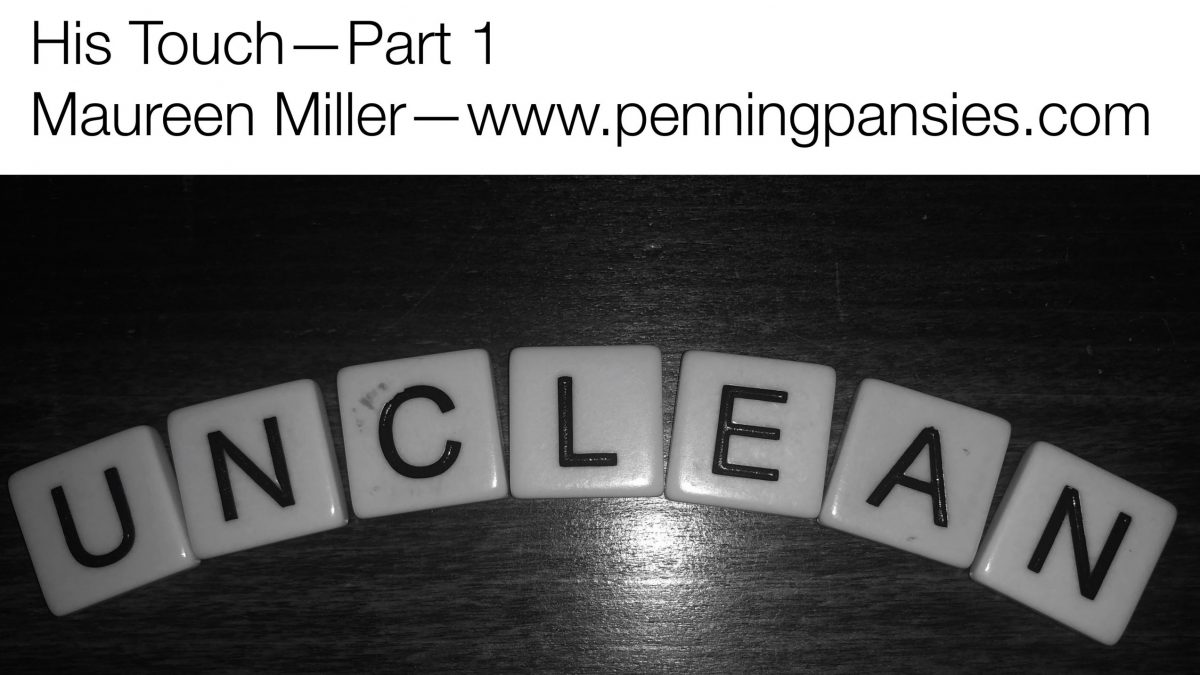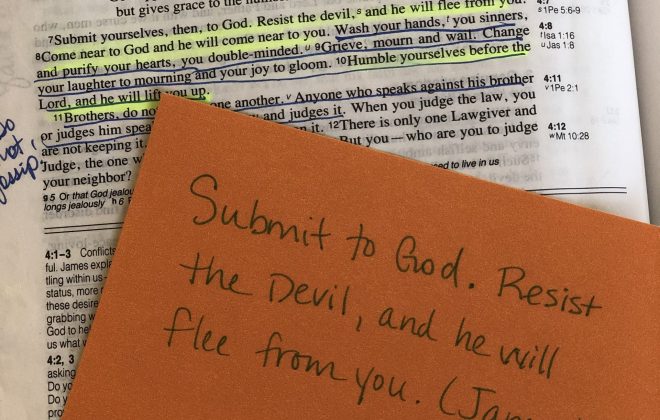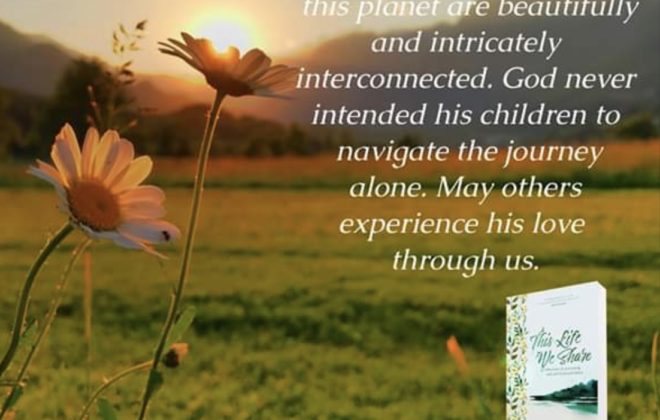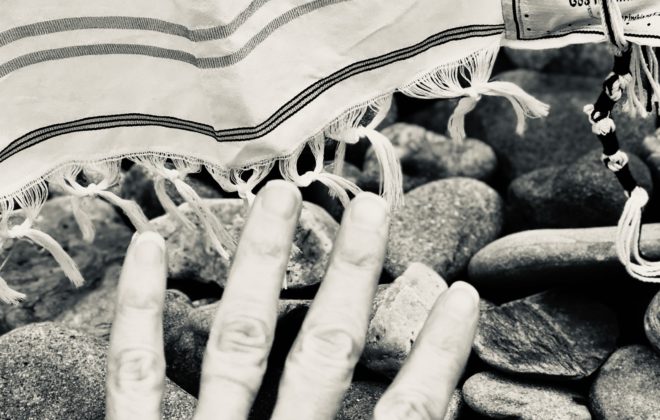His Touch–Part 1 (Unclean)
“When he came down from the mountain, great crowds followed him. And behold, a leper came to him and knelt before him, saying, ‘Lord, if you will, you can make me clean.’ And Jesus stretched out his hand and touched him, saying, ‘I will; be clean.’ And immediately his leprosy was cleansed. And Jesus said to him, ‘See that you say nothing to anyone, but go, show yourself to the priest and offer the gift that Moses commanded, for a proof to them’” (Matthew 8:1-4 ESV).
(I’ve taken creative liberty to historically fictionalize the story of the healed leper from Matt. 8, having researched the ancient Hebrew culture and their customs concerning betrothal and marriage, as well as Jewish law regarding that which deemed someone unclean. This will be shared in more than one part.)
*******
I remember my husband as one who stood proud. That’s what first drew me to him, in fact. His stature. His confidence, even as a youth four years my senior.
I was only fourteen when I became betrothed to Ethan. Our families had known one another for, well, my lifetime. We grew up playing in daisy-dotted fields, dancing during harvest under the full moon with throngs of other Hebrew children. I suppose I always knew we’d one day marry. So it was no surprise when, not long after I’d first experienced that which deemed a woman unclean, sent me into isolation for seven days, I heard talk of their plans. “And, of course, there’ll be children.” Though Mama’s words were merely whispered to Abba, I could hear her smile.
Our wedding day was indeed a festive affair–our family and friends gathering from all around the farmlands just outside Capernaum. I’ll never forget how handsome my Ethan was–how tall he stood as he waited beside his own abba for the moment I would appear–adorned in the dress Mama had made, hair strewn with flowers from her garden. I remember, too, a gentle breeze which rustled the leaves in the olive grove, and I caught the fragrance, faint though it was, of roasting lamb being prepared over fire’s embers for the feast that would soon commence.
That was half a dozen years ago now, though only half that many have I actually spent with Ethan. My Ethan–abba to our only child, though we’d hoped for more sons and daughters. Abigail was born a mere nine months after I first entered Ethan’s home, that little nook he constructed with his own two hands adjacent to his parents’ abode, where he’d held me tight, where I felt protected, enveloped in his strength.
And I’ll never forget that morning. He’d returned too early for the midday meal, which Abigail, such a helper at only three, was helping me prepare, and we laughed as we worked. Ethan’s face was taut as he stood in the doorway, enshrouded by the bright, late morning sunshine. I could see the muscles in his jaw clenching and releasing in rhythmic motion, and I’d laughed. “Why, Ethan–you look like a dying tilapia of the Galilee, your gills flaring so. What is it? Are you desperate for cooler air, for I fear you won’t find it here.”
But he did not return my joke with friendly banter. Instead, he stood perfectly still, only his eyes darting between me and his daughter for a moment before stepping forward to kneel, almost falling before his little one. Staring straight into her hazel eyes, he blurted, “Oh, Abba’s dainty girl–whose name means ‘My father is joyful.’ How you’ve made me so, my Flower. Now run outside and play, for I must speak with Mama.”
Obediently, Abigail skipped into the summer sunshine, grateful to be free of the confines of the kitchen where our lentil stew was set to boil, steam’s haze making us both hot and sticky. Ethan’s eyes followed her until she rounded the corner, disappearing into the summer day. Only then did he turn to me, eyes fixed on mine, and that’s when I noticed his right hand wrapped in cloth, concealed under his left arm held tight to his chest. My face registered my consternation. “Ethan?”
I reached to touch him, but he quickly withdrew. “No.” Slowly, his left hand unwrapped his right, the red stains a stark contrast to the white cotton, and I sucked in my breath.
“What happened? Are you injured?”
Ethan allowed the bandage to fall to the floor, and I noticed the discolored fingers on his right hand, the drying blood. I could not, however, decipher which one or ones were hurt as all were crimson, and I winced. “Oh, Ethan.”
My husband, too, stared at his right hand. “In the field, I was cutting grass with a sickle.” He paused, hesitating. “I… I felt no pain. Simply saw that the tips of my fingers had been grazed, were bleeding… and…” Again, his voice trailed off, and he looked for a moment as though he might lose his footing. He fumbled for a stool, then sat. There seemed to be more he wanted to say.
“And?”
Taking a towel from the table, he spread it out on his knee, then rested his injured hand, palm up, fingers slightly bent. And I saw. The tips of his middle and pointer fingers were still oozing blood, that which we called liquid life because we knew. Blood carries oxygen to cells and is something one can’t live without, but it may cease to flow properly when disease is present.
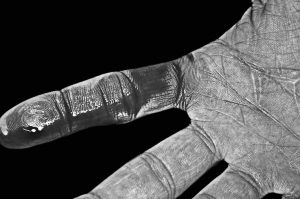
More times than I can count I’ve seen the life-blood drained from our animals before processing them. It is, according to the ancient scriptures, an abomination for Hebrew’s to ingest blood–a law we follow more closely than even our newborn lambs follow ewes. Indeed, I am no stranger to the sight of blood.
Ethan’s eyes met mine. “Leah, my love…” He pressed his wounded fingers with the corner of the towel before continuing. “I’ve not been honest. For quite some time, in fact, but I must now tell you. It seems to be… yes, it seems to be the right time.”
And it was then that Ethan, who’d been my husband for only three years though I’ve known him all my life, poured out his heart–divulging how he’d noticed changes, weakness and numbing in his hands and feet. “Especially in the right hand,” he admitted. “And now this–proof of what I’ve pondered with great trepidation.” Once more, there was a beat of silence. Then, what he spoke next was the unfathomable question–
“Leprosy?”
And I gasped. Not my Ethan, whose very name means ‘strong, firm.’ The one whose stature drew me to him, even in his youth. I’ve seen, though only from a distance, those who dwell in the leper colony outside the city gate–how bent even the tallest of men become, how feeble with their rotting flesh. And I could never forget the stench that wafts up the Galilean hillside, so putrid no amount of myrrh could conceal it–that smell of… death.
My Ethan–a leper? It couldn’t be.
And yet, as my eyes fell again to his bleeding fingertips–those fingers whose touch stirred pure devotion and desire, those fingers that were gentle, kind, and loving–could it be? Was their numbness a sign of disease, mere representations of an invasive, uninvited, all-encompassing intruder–that which, with one resounding word, labeled its victims when shouted as warning to anyone who would listen–
Unclean? (To read Part 2, click the link.)
Could it be?
(To be continued…)
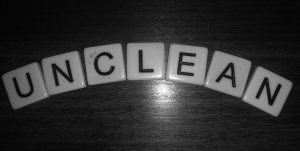
For further study, read the following biblical passages about leprosy:
Leviticus 13
2 Kings 5
Luke 5:12-16
Luke 17:11-19
Dear Jesus, thank you for being our healer, the One who makes us clean through forgiveness. In this day in age, with all the talk of quarantining and isolation, with the lack of physical touch due to fear, we thank you for the up-close-and-personal relationship You’ve invited us to have, with You. It’s simply amazing! We love You, Jesus. Amen.
Search
Subscribe to Blog via Email
Categories
- At Home (185) 185
- God's Word (194) 194
- His World (214) 214
- Uncategorized (5) 5

